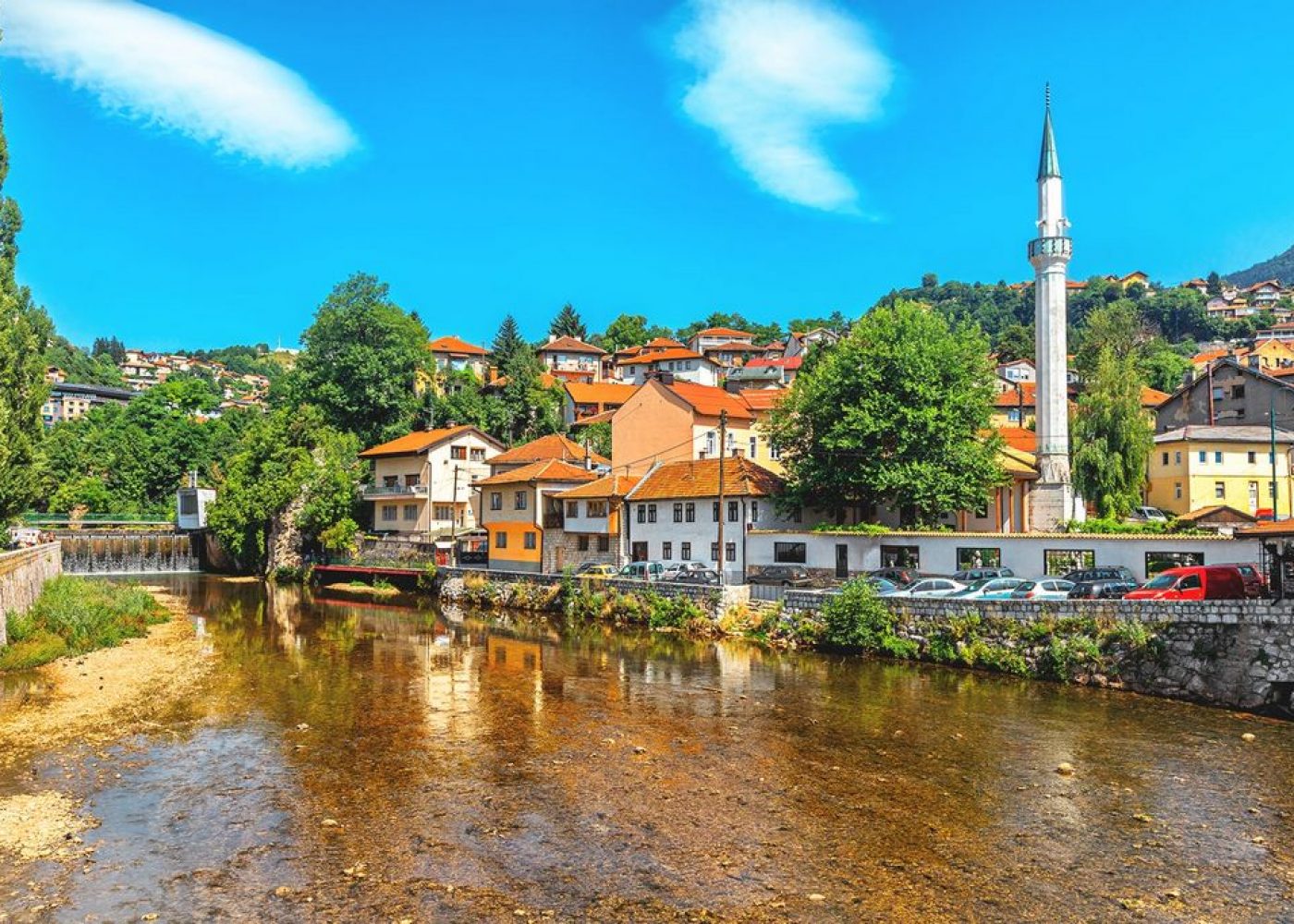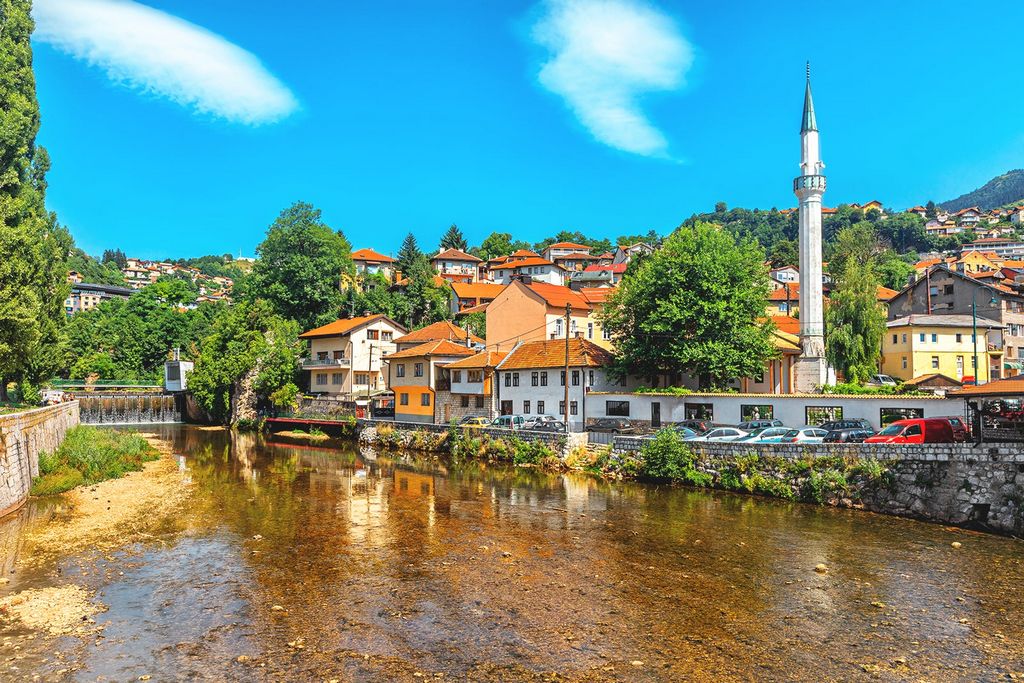Sarajevo: Buseln under the Archduke
In Sarajevo, the murder ceremony year is not marketed to travelers, however the tranquility is well known
When he opened up the tea hair salon in 2010, he hadn’t also thought about the 2014 ceremony year, neither the First World War, nor the reality that tourists might be visiting his store this year. ‘Franz and Sophie’ is created on the red sign on one of those Sarajevo roads that, thus numerous, climbs capital. Adnan Smajic’s next-door neighbor, the shoemaker nearby, jokingly threatened him with opening a 2nd tea hair salon – called ‘Gavrilo Princip.’ ‘Franz and Sophie’ has a specific snide connotation, specifically in Sarajevo.
Smajic himself sees the Austro-Hungarian period as a ‘fairly positive duration of Bosnian growth’ due to the fact that it was a time when feudalism was abandoned. On the other hand, Bosnia-Herzegovina was additionally a quasi-colony of Austria-Hungary at the time. ‘And tea has something to do with manifest destiny,’ he claims. In the book edge, there are a couple of biographies regarding Franz Ferdinand. But no one reviews them. Smajic’s universe has to do with another thing anyhow.
Bosnian harmony
The tea salon serves as a party of Bosnian harmony. Every moment is experienced as if one were trying to check out a country very slowly. Each moment is therefore swallowed like tea that leaves secrets on the tongue. This kind of pleasure is the opposite of intake. For any type of thought of cash or any comparison with others as rivals would certainly ruin the harmony.At site https://forum.klix.ba/sarajevo-f125/jeftin-smjestaj-u-sarajevu-t54032.html from Our Articles It’s about regarding others as intensely as possible. Even individuals on the street in Sarajevo hold their gazes for a long time. ‘Sta ima? Gdje si?’ ‘What’s up? Where are you?’ they ask, with the ‘Gdje si’ being pronounced like ‘dschesi’ and actually useless.
It’s not easy not to consider money in Bosnia-Herzegovina, since lots of Bosnians are desperately inadequate, and it’s almost impossible to ignore it. But precede like the tea beauty parlor, it’s possible. Adnan Smajic originates from Bijeljina, the city where the battle started in 1992. He was a medical professional at the health center when among the worst mass murderers, the guerrilla boxer Arkan, took up residence there. Smajic took off to Germany in 1993, functioned as an evening watchman and in the pharmaceutical market. 10 years later on, he went back to his homeland.
Some people have actually found it ‘stupid,’ he says, to offer 140 varieties of tea in the coffee-producing city of Sarajevo. He fulfills his dealers in Bremen and Hamburg after they’ve brought their goods from China or Japan. Half of the teas he markets are organic. He tries to develop blends that stimulate the Bosnian way of life. ‘My black tea is a bit mintier than in Germany,’ he discusses. On the wall are tins with tea names like ‘African Elegance’ and ‘Franz and Sophie Cranberry Unique.’
Where did the idea come from, Mr. Sommelier? ‘In the 1990s, you could not drink respectable coffee in Germany,’ says Smajic. ‘So I first assumed I ‘d do something clever with high levels of caffeine, and after that I had the insane concept of doing something with tea in Sarajevo.’ He trained as a tea sommelier near Bonn.
In some cases Austrians additionally pertain to his beauty parlor, which lies near the basilica. One when whispered in his ear: ‘Are you additionally a monarchist?’ The exiled physician from Bijeljina had to laugh since the Austrian evidently didn’t understand the Sarajevo sneer.
There are also a few very youths in the Bosnian capital who have more created the teaching of Bosnian tranquility. They sold their homes and got a tract up on the hill pasture, twelve kilometers outside the city. There they opened an eco-restaurant: The tables are constructed from glass on bales of straw – transparency and energy savings, in other words. The food is solely natural, all entire grain, no meat. The very best are the soy schnitzels with kajmak, the Bosnian cream cheese. Even the ustipci, salty Bosnian doughnuts, are made of entire grain.
Generally, Ecofutura looks like it was dreamed up by a couple of Eco-friendlies from Central Europe. And Milan Demin and his close friends are most likely the initial Bosnian Greens. ‘It needed to be close to the city, but in a wilderness setup,’ the 32-year-old explains the task’s requirements. In 2011, the dining establishment was constructed totally of straw. In some places, you can even see the straw protruding from the gold frameworks. They call it a ‘home window of reality,’ explains Demin.
The alternate scene, especially young households, gather right here at Ecofutura on weekend breaks. There’s a recreation rooms. A weekend break remain for two people costs simply euro 25; during the week, each person pays euro 20. Swiss visitors that leased rooms below (there are extremely adoringly enhanced guesthouses) have actually been called insane by the Bosnians, offered the prices.
Listed below Ecofutura lies a farming town. Sheep trek up the courses. Over lie birch groves and large towering fields, over which birds of prey circle, and just forest and alpine fields. The timber waste utilized for heating is burned as though approximately 95 percent of the energy is recouped. Listed below the dining establishment, there’s also an ‘adrenaline park’ where you can swing from tree to tree while putting on a harness.
Those that do not intend to get away the city’s smoke can also stay in the heart of the commemorative city. The celebratory hostel is called ‘Franz Ferdinand’ and is really centrally located, to the right of the Ferhadija pedestrian blvd. Below, for just 10 euros, you can spend the evening under a large statue of Franz Ferdinand, that stares at you also while you dream.
‘Pity on you, inhabitants!’
The hostel owners have actually gotten hazards on Facebook: ‘Gavrilo Princip will certainly return and kick your asses for life!’ or ‘Embarassment on you, occupiers!’ were insinuations to the Austrian inhabitants, says hostel supervisor Emela Burdzovic. Burdzovic stresses, nevertheless, that this is the exception and that many Serbian guests come here and truly like the hostel. She doesn’t wish to ‘take sides’ anyhow, but rather make a profit. However, it is important to her that the furniture is produced in both parts of Bosnia-Herzegovina, with some furniture likewise coming from the predominantly Serb Republika Srpska. A close friend from New york city came up with the concept of naming the hostel ‘Franz Ferdinand,’ and it sold well during the celebration year. Burdzovic price quotes that around 30 percent come as a result of the name, several from Australia, Japan, and the U.S.A..
The hostel looks like a gallery: Timelines on the floorings and walls offer information about occasions that occurred a century back. Even the fate of the ill-fated car in which the beneficiary to the throne died is recounted carefully. On the very first flooring, photos and quotes highlight the First World War. Guests can stay in an area dedicated to the German general Albrecht Freiherr von Richthofen. One space commemorates the Salonika front, one the Battle of Verdun, and one Gavrilo Princip. It’s one of the most preferred rooms in the hostel, where guests sleep in white bunk beds reminiscent of ship’s cabins.
‘Did this guy get his name from the band Franz Ferdinand?’ Burdzovic was once asked by a guest that pointed to the huge photo of the successor to the throne with the mustache at the function. The hostel was created with the guidance of the assassination gallery.
This lies beside the Latin Bridge, known as the ‘Princip Bridge’ during Yugoslavia, where Franz Ferdinand and Sophie were implemented. The little museum does not have much to supply. An exhibition that explains the events with range and academic accuracy is missing in the Bosnian resources.
This is specifically what one would hope for at Suite Austria in Ilidza, where Franz Ferdinand and Sophie remained before they were assassinated. The medspa town on the borders of Sarajevo still retains its Kakanian beauty, but its visitors are mainly from the Arab world. Incidentally, Suite Austria was called ‘Vila Srbija’ during the Yugoslav period. During the Bosnian War (1992-1995), it housed UN troops; today, it awaits a financier.
In the space with a balcony on the first flooring where the beneficiary to the throne invested his last night, there is now rubble and a tattered carpet. There is no tip of Franz Ferdinand and Sophie. The fact that the historical occasion in Sarajevo is receiving little attention shows the uncertainty concerning how to handle this delicate subject. (Adelheid Wolfl, DER STANDARD, Album, March 22, 2014)


